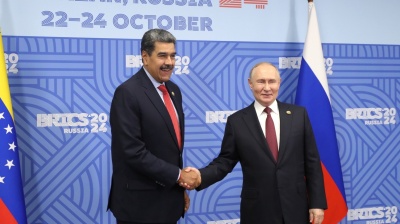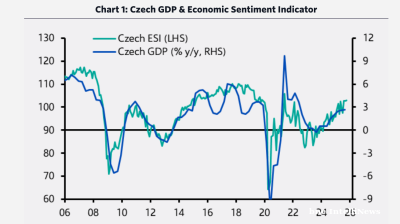The keynote speech by Hungarian Prime Minister Viktor Orban over the weekend at the Baile Tusnad Summer University in Romania has once again triggered criticism among Hungary’s neighbours. The Hungarian ambassadors in Bucharest and Bratislava were summoned to explain the Hungarian PM’s alleged meddling in the internal politics of these two countries.
At the same gathering a year ago, Viktor Orban caused an international uproar when he said that Hungarians "don't want to be a mixed-race" like in some Western European countries.
In his speech, Viktor Orban referred to the area in southern Slovakia where around half a million ethnic Hungarians live as "breakaway territories", sparking a rebuttal from the Slovak foreign ministry.
“Czechoslovakia and later Slovakia or Hungary are equally successor states of Austria-Hungary. Nothing could have been broken away from the present day Hungary,” said the Slovak foreign ministry, adding that it considers spreading such narratives by anyone to be "pointlessly going against good neighbourly relations and stability in our area".
“Casting doubt on the territorial integrity and sovereignty of Slovakia in any direct or indirect way won’t be tolerated, nor meddling in our domestic affairs,” a statement on MFA’s website reads.
The Orban regime has often played with ultra-nationalist tropes, whipping up Hungarian self-pity over the loss of its "historic lands" in the Treaty of Trianon at the end of the first world war, in which Czechoslovakia and Romania took over areas with sizeable Hungarian minorities.
Orban also drew criticism from Romania, which has given home to the Baile Tusnad Summer University since the late 1990s, for making fun of Romania's government and political system.
Hungary’s strongman criticised the Romanian foreign ministry, which had advised him on what he should "not talk about" in his speech. These included national symbols and collective minority rights. He was also urged not to mention the Szeklerland, predominantly inhabited by ethnic Hungarians.
Analysts noted that it is relatively uncommon for a prime minister to receive a démarche and that Orban has breached diplomatic etiquette by unveiling its content.
The Hungarian leader defied the calls and drew huge applause from the crowd when he said: "I never claimed that Transylvania and Szeklerland are Romanian territories."
According to Hungary's prime minister, minority rights exist and also apply to Hungarians in Transylvania.
Around 50-100 Romanian nationalists attempted to disrupt the speech, with messages like "Transylvania will forever be Romanian soil."
Orban was criticised by Romanian political leaders and the press for mocking the Romanian government in front of representatives of the Hungarian minority when he said that Romanian Prime Minister Marcel Ciolacu is the 20th Romanian leader he had known since he assumed power in 2010. He went on to add ironically: "Perhaps for Romania, it will work on the twentieth attempt."
Hungarian Foreign Minister Peter Szijjarto said the meeting at the Romanian foreign ministry was calm and courteous, reiterating his desire to maintain an atmosphere of mutual respect in the bilateral relationship.
The Czech government was the first to react to Orban’s speech. Orban had accused "federalists" of launching an attack against the Visegrad Group, Hungary, Czechia, Poland and Slovakia.
"We can all see the result: the Czechs have essentially joined [the federalists], Slovakia is teetering, and only the Poles and the Hungarians are holding out," he said in his speech.
Czech leaders called Orban’s assumption absurd, saying that Czechia is a sovereign state, and its government is protecting the interests of the nation.
The Visegrad Group of Poland, Czechia, Slovakia and Hungary has been essentially moribund since Russia's invasion of Ukraine in February 2022, given Orban's repeated attempts to obstruct sanctions on Russia and support for Ukraine. Even Poland – Orban's closest ally in the EU – has been highly critical of Orban's stance, leaving the Hungarian strongman isolated not just in the region but in the whole EU.
News

APEC meeting closes in South Korea, WTO dead and buried
This was not a summit. It was a eulogy for the WTO, and APEC just lowered the flag to half-mast.

Turkish state grabs another fintech as company seizures continue at pace
Turkey first seizes companies, then tries the suspects. Some companies are sold before the trial process.

Ukraine’s elite HUR forces turn the tide in the battle for Pokrovsk, as Russia’s effort to capture key logistics hub fails
The battle for Pokrovsk became intense early on November 1and it looked like the fall of the key logistics hub to Russia was imminent. But a bold counterattack by Ukraine’s elite HUR forces seems to have turned the tide.

US prepares attack on Venezuela as Maduro begs Putin for aid
The Trump administration has reportedly drawn up a list of potential military targets within Venezuela as part of its intensifying pressure on President Nicolás Maduro, who has turned to Moscow seeking urgent military assistance.




